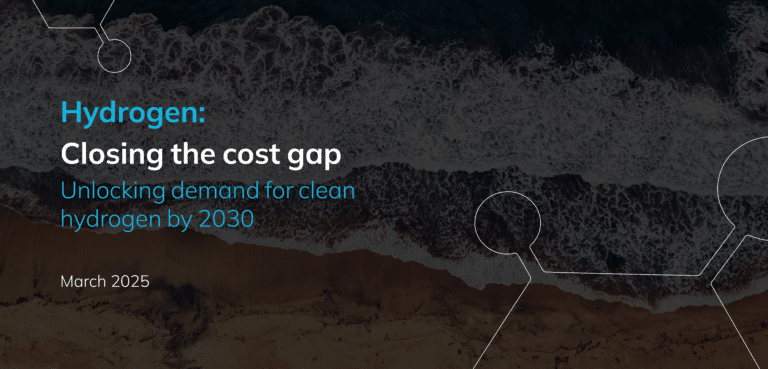Global digital revolution creates new energy demands
While digitization can increase energy efficiency, e.g., by sharing of assets such as cars and improving energy efficiency in our daily lives through IoT, it also creates massive new energy demands. The information and communications technology (ICT) sector already consumes more than 50% of the US electricity consumption. In the coming years, energy demand for ICT is expected to grow further, doubling by 2050, and this forecast already considers the continuous improvement of ICT energy efficiency.
In order to limit global warming to two degrees Celsius, the world will need to make dramatic changes. With the clear imperative to reduce carbon emissions and improve air quality, these new energy demands must come from clean and renewable sources. This implies the need for an energy carrier that can take solar and wind power, channel it to its end use, and release the energy when needed.
How hydrogen could help
Two main technologies – batteries and hydrogen – can provide the required storage for renewables. While often portrayed as competitors, they are, in fact, complementary for different applications.
The high energy density of on board hydrogen storage (about 10 times higher energy density compared to rechargeable batteries) makes hydrogen fuel cell systems ideally suited for powering large, heavy or “vertical” (e.g., flying) modes of transport. Longer ranges go hand-in-hand with faster refueling, slashing wait times, increasing utilization, and reducing infrastructure requirements. While initial incremental infrastructure investments might be higher, hydrogen infrastructure is less costly at scale and does not affect the electricity network, while direct charging infrastructure will require significant grid upgrades.
This discussion paper seeks to start investigating the impact of digitization on energy demand and establish a dialogue with the ICT sector on how digitization and hydrogen could complement each other’s impact during the energy transition. Hydrogen offers strong benefits that could enable major digital trends and thus serve as an efficient, zero-emission energy vector. Four specific promising use-cases are explored in this discussion paper:
- Autonomous taxis and shuttles
- Digitally enabled freight chains
- VTOL taxis
- Data centers
In 2030, hydrogen could power …




